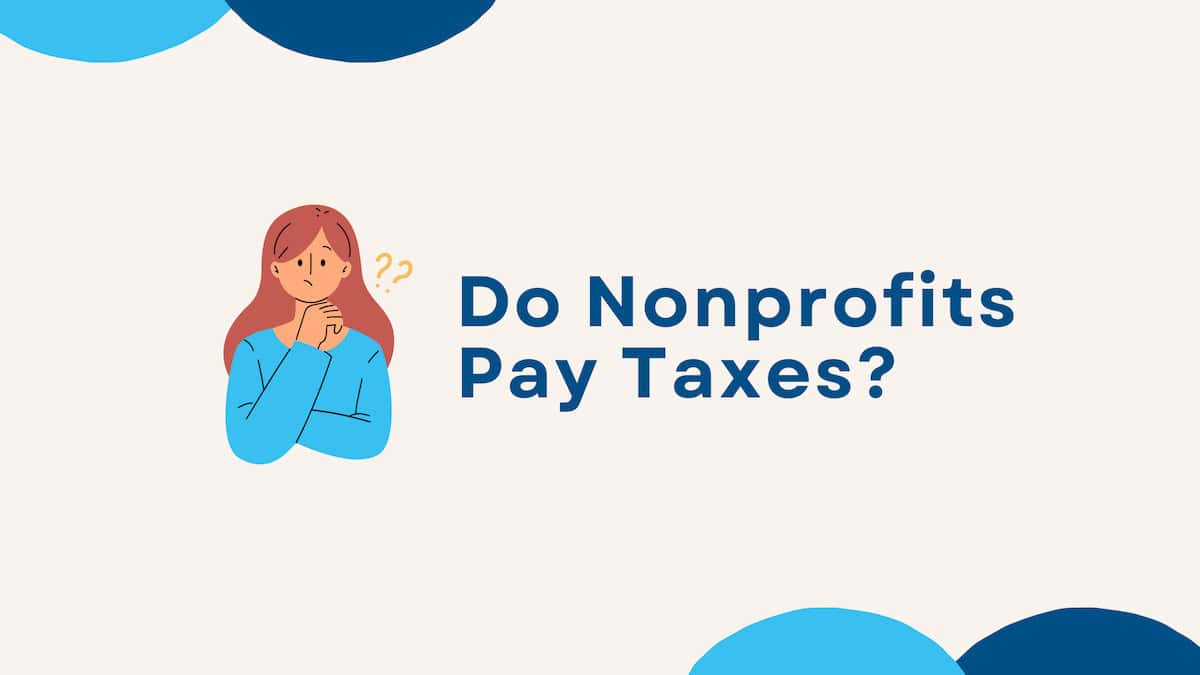Nonprofit organizations play a crucial role in addressing social, cultural, and environmental issues, often operating with limited resources and relying heavily on donations and grants.
A common question that arises about these organizations is whether they pay taxes.
The answer is multifaceted and depends on several factors, including the type of nonprofit and the nature of its activities.
In this guide, we will explore the tax obligations of nonprofits, highlighting the scenarios in which they may be required to pay taxes.

Tax-Exempt Status
501(c)(3) Organizations
The most well-known type of nonprofit is the 501(c)(3) organization, which includes public charities, private foundations, and religious institutions.
These organizations are exempt from federal income tax on income related to their exempt purposes.
To qualify for this status, a nonprofit must operate exclusively for religious, charitable, scientific, literary, or educational purposes, among other specified categories.
Other Types of Nonprofits
Other nonprofit organizations, such as 501(c)(4) social welfare organizations, 501(c)(6) business leagues, and various other 501(c) classifications, also enjoy tax-exempt status for income related to their primary purposes.
However, the specific requirements and benefits can vary depending on the classification.
Nonprofit Resources
The Charity Charge resource hub is dedicated to providing tips, tools, and information to help your nonprofit create and grow a modern organization.
Situations Where Nonprofits May Pay Taxes
Unrelated Business Income Tax (UBIT)
Nonprofits are required to pay taxes on income generated from activities that are unrelated to their primary exempt purposes. This tax is known as the Unrelated Business Income Tax (UBIT).
For example, if a nonprofit operates a gift shop and the sales are not substantially related to its mission, the income from the shop may be subject to UBIT.
The rationale behind UBIT is to prevent nonprofits from having an unfair advantage over for-profit businesses in activities that are not related to their exempt purposes.
Filing Requirements for UBIT
Nonprofits with unrelated business income of $1,000 or more must file Form 990-T with the IRS to report this income and pay any applicable taxes. It’s important for nonprofits to regularly evaluate their revenue streams and assess whether any income might be considered unrelated business income.
Common sources of unrelated business income include advertising, rental income from debt-financed property, and income from certain fundraising events.
Employment Taxes
Nonprofits are required to withhold and pay employment taxes for their employees, just like any other employer.
This includes federal income tax withholding, Social Security and Medicare (FICA) taxes, and federal unemployment (FUTA) taxes.
Nonprofits must also comply with state and local employment tax requirements.
These obligations ensure that employees receive proper credit for their contributions and benefits.
Employment Tax Reporting
To comply with employment tax requirements, nonprofits must file various forms, including:
• Form W-2: Wage and Tax Statement for employees.
• Form W-3: Transmittal of Wage and Tax Statements.
• Form 941: Employer’s Quarterly Federal Tax Return.
• Form 940: Employer’s Annual Federal Unemployment (FUTA) Tax Return.
State and Local Taxes
While federal tax exemptions apply to most nonprofit income related to their exempt purposes, state and local tax obligations can vary. Some states and municipalities may impose taxes on certain types of income or activities, and property taxes may apply to real estate owned by nonprofits unless specific exemptions are granted.
Nonprofits should be aware of and comply with the tax laws in their respective states and localities.
Property Taxes
Many states and localities offer property tax exemptions for property used exclusively for charitable, religious, or educational purposes.
However, the criteria and application process for these exemptions can vary. Nonprofits must ensure that their property usage complies with the requirements for exemption and should apply for exemptions where available.
Sales Tax
Nonprofits may also be subject to sales tax on goods and services they sell, depending on state and local regulations.
While some states provide sales tax exemptions for purchases made by nonprofits, others may require nonprofits to collect and remit sales tax on sales to the public.
Sales Tax Exemptions and Obligations
Nonprofits must understand the sales tax laws in their state and local jurisdictions. In some areas, nonprofits can obtain exemption certificates to make tax-free purchases for their exempt activities.
However, if a nonprofit sells merchandise or services, it may need to collect sales tax from customers and remit it to the state. Nonprofits should carefully track their sales and use tax obligations to ensure compliance.
The Charity Charge Nonprofit Credit Card – Unique Benefits Designed for Nonprofits.
Finally – a credit card designed exclusively for nonprofits with no fees and key protections for
peace of mind. Our program is designed to support nonprofit best practices such as separating
organizational and personal funds. – Get Started
Ensuring Compliance
Record Keeping
Accurate and thorough record-keeping is essential for nonprofits to track their income and expenses, especially when distinguishing between related and unrelated business income.
Proper records help ensure compliance with tax laws and facilitate the preparation of required tax filings.
Professional Assistance
Given the complexities of tax laws and regulations, many nonprofits benefit from seeking assistance from accountants or tax professionals who specialize in nonprofit taxation.
These experts can help navigate the nuances of tax obligations and ensure compliance.
Staying Informed
Tax laws and regulations can change, so it is important for nonprofit leaders to stay informed about current requirements. Regularly consulting the IRS website, participating in nonprofit industry groups, and attending relevant training sessions can help organizations stay up-to-date.
Conclusion
While nonprofits enjoy significant tax advantages, they are not entirely exempt from paying taxes. Income generated from unrelated business activities, employment taxes, state and local taxes, and sales taxes are areas where nonprofits may have tax obligations.
By understanding and complying with these requirements, nonprofits can maintain their tax-exempt status and continue to focus on their missions without the burden of unexpected tax liabilities.
For nonprofits, ensuring compliance with tax obligations not only protects their tax-exempt status but also strengthens their financial health and public trust.
Through diligent record-keeping, seeking professional advice, and staying informed, nonprofits can effectively manage their tax responsibilities and maximize their impact on the communities they serve.
















